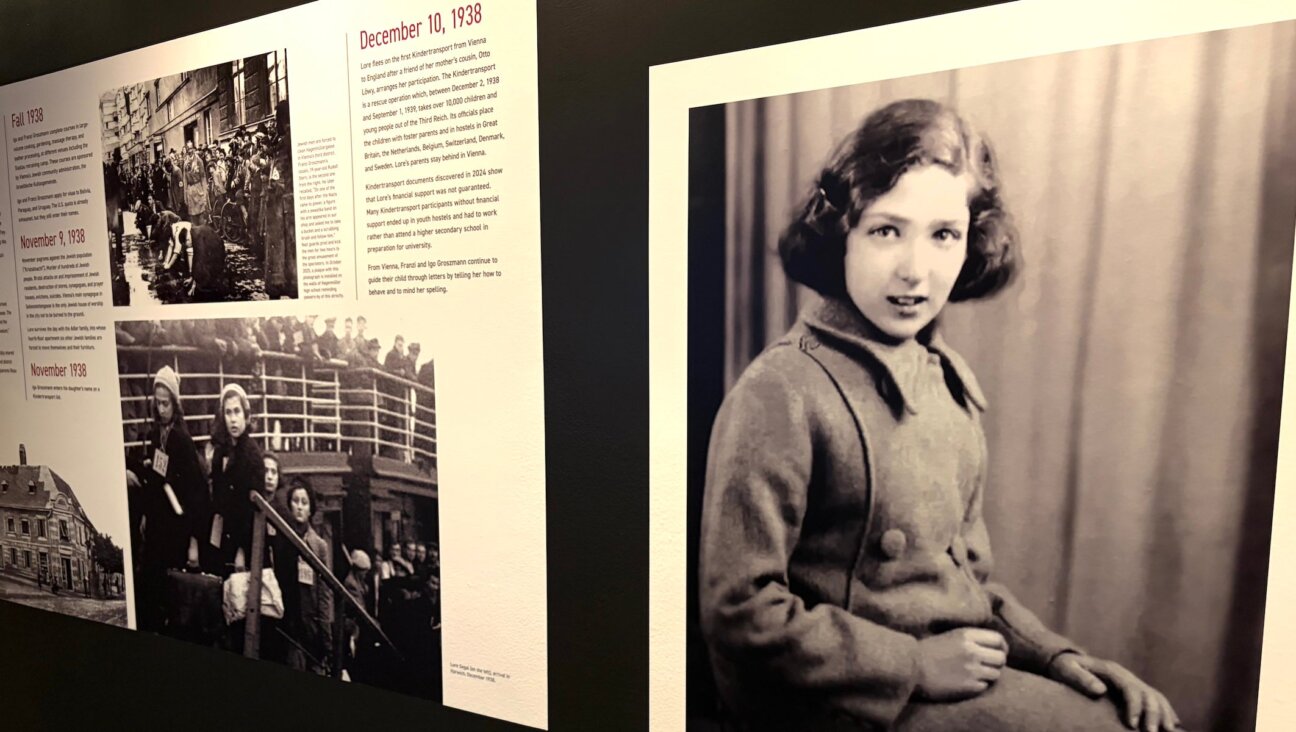Effort To Align Jewish Community With Turkey on Genocide Angers Armenian Activists
Washington — Armenian activists are crying foul over Turkey’s hiring of a Jewish lobbyist to work against the recognition of the Armenian genocide.
Noam Neusner, former chief speechwriter on policy issues for President Bush and White House liaison to the Jewish community, was hired by the government of Turkey to promote strong ties with major Jewish groups and to urge these groups to oppose House Resolution 106, which would have labeled the murders genocide. (Neusner has written for this newspaper since April, contributing to the Forward Forum.)
The disclosures, required under the Foreign Agents Registration Act and filed September 30, provide a window into the work being done behind the scenes to sway Jewish organizations on foreign policy issues. Turkey has been among the leading foreign governments to lobby the Jewish community. Eastern European and Middle Eastern governments also have conducted outreach efforts, but on a smaller scale.
According to the filings, Neusner Communications, where Neusner is listed as principal, received a monthly retainer that recently was increased to $8,500 for Neusner’s extensive contacts with major figures in the Jewish community. It was the Armenian National Committee of America, an advocacy group with goals that include “ensuring the appropriate commemoration of the Armenian genocide,” that first made the documents public.
Neusner Communications received a total of $80,833 for the period from November 2007 to September 2008, according to the filings. Neusner said he “does not discuss client relationships.”
The Turkish government’s lobbying effort in Washington also included contracts with Richard Gephardt and Dick Armey, two former members of Congress, as well
as dealings with several public relations firms. Gephardt and Armey’s efforts were not targeted to Jewish groups, and the former congressmen were paid much more than Neusner Communications.
Aram Hamparian, ANCA’s executive director, called the hiring of Neusner to work on behalf of the Turkish government “a misguided attempt to manipulate Jewish-American opinion.” Hamparian argued that Jewish support in America for the Turkish side is “crumbling” and therefore there is a need to hire a lobbying firm aimed specifically at the community. “This is a moral issue,” he said. “There is no wiggle room on the issue of genocide denial, just as on the issue of Holocaust denial.”
The dispute between Turkish and Armenian representatives in the United States focuses on the murder of more than 1 million Armenians in the Ottoman Empire after World War I. While leading historians and many Western countries have characterized the murders as “genocide,” the modern Turkish government, which succeeded the Ottoman Empire, refuses to accept this definition and is fighting attempts worldwide to recognize the events as such.
The issue has reached Congress several times, most recently in October 2007, when HR 106, which recognized the murders as genocide, passed the House Foreign Affairs Committee and was on its way to approval on the floor. But massive Turkish pressure and requests from the Bush administration blocked the resolution from going any further.
The HR 106 issue was at the heart of Neusner’s work on behalf of the Turkish government, according to the FARA documents. As the debate in Congress reached its peak, phone calls and e-mails to Jewish leaders intensified. The files list dozens of contacts with leaders and Washington directors of most major Jewish organizations, including the American Israel Public Affairs Committee, B’nai B’rith International, the Anti-Defamation League, the Jewish Council for Public Affairs, the Jewish Institute for National Security Affairs, the American Jewish Congress and the Conference of Presidents of Major American Jewish Organizations. The topic of all these calls, as stated in the filing, was the same: HR 106.
Other advocacy work included arranging meetings for Jewish leaders with the Turkish president, prime minister and foreign minister, as well as helping to organize a photo exhibit in Seattle of historic synagogues in Turkey.
Some conversations seemed to go directly to the core of the Turkish concerns in Washington, such as the June 19 discussion with two Aipac officials on “Turkish concerns on Armenian issue; Lack of support on the Hill from Jewish organizations,” or the August 25 call to Jess Hordes, head of the ADL’s Washington office, on “ADL’s position re: Armenia & genocide.”
Hordes told the Forward that there is nothing unusual about foreign countries trying to promote their interests by contacting the Jewish community. “They do what lobbyists traditionally do — ensure communication between their embassy and our community, facilitate meetings and arrange events,” he said.
Pro-Turkish activists said that Armenians also are effectively lobbying the Jewish community, using Armenian organizations in the United States to lobby Jewish leaders to side with them in the dispute.
According to one pro-Turkish activist, while most Jewish leaders are sympathetic to the Armenian claim “as a matter of historic truth,” they oppose having Congress intervene on this issue, because they believe it will complicate relations with Turkey.
Jason Epstein, a consultant who worked on behalf of the Turkish embassy in Washington, said that Turkey seeks the support of Jewish Americans, in part because “the community is more likely to respond to issues of global concern” and also because of the strong bilateral relationship between Turkey and Israel.















